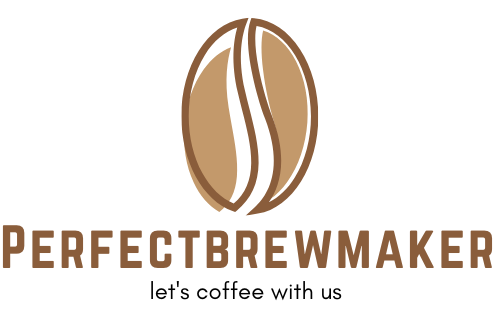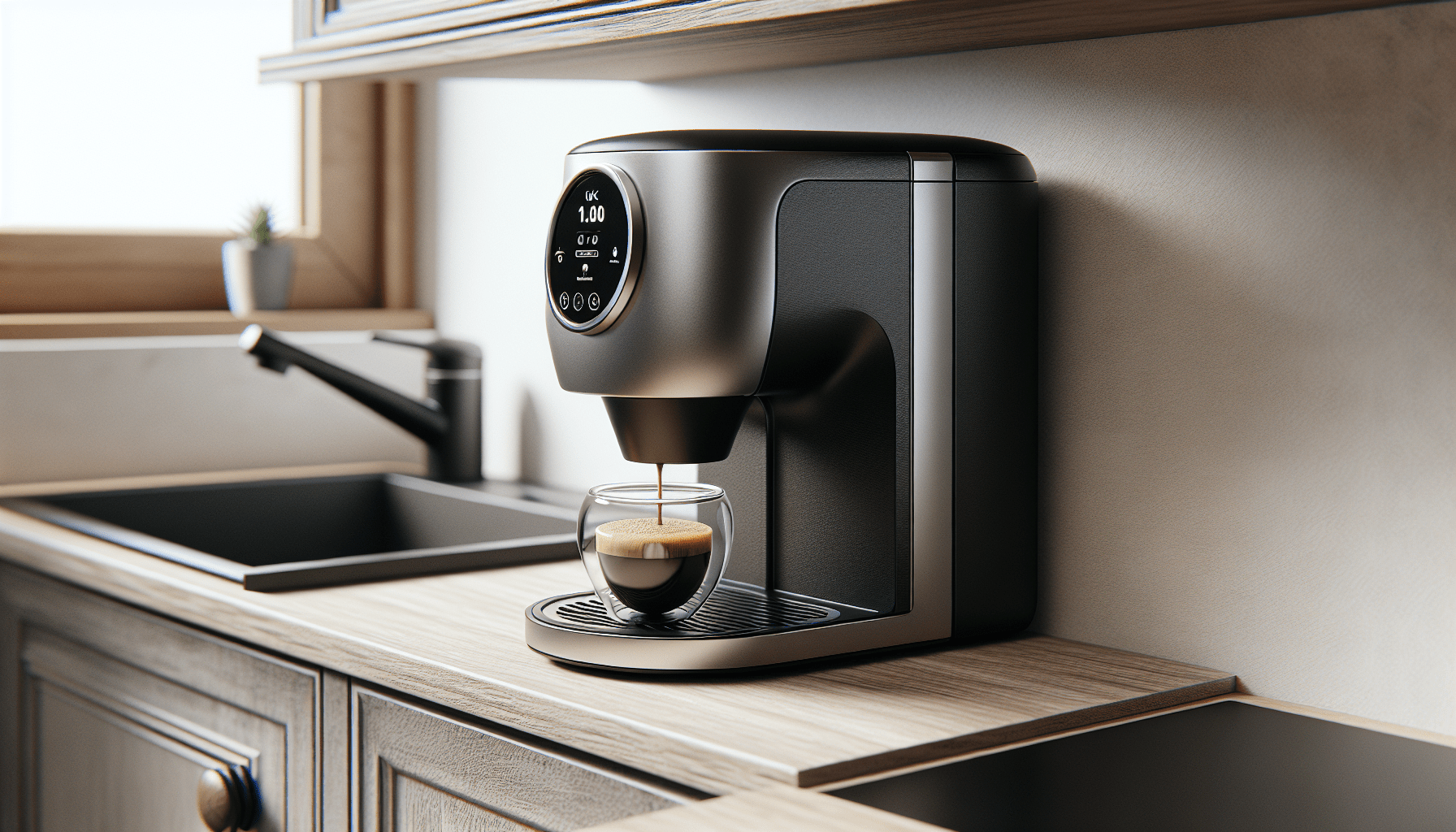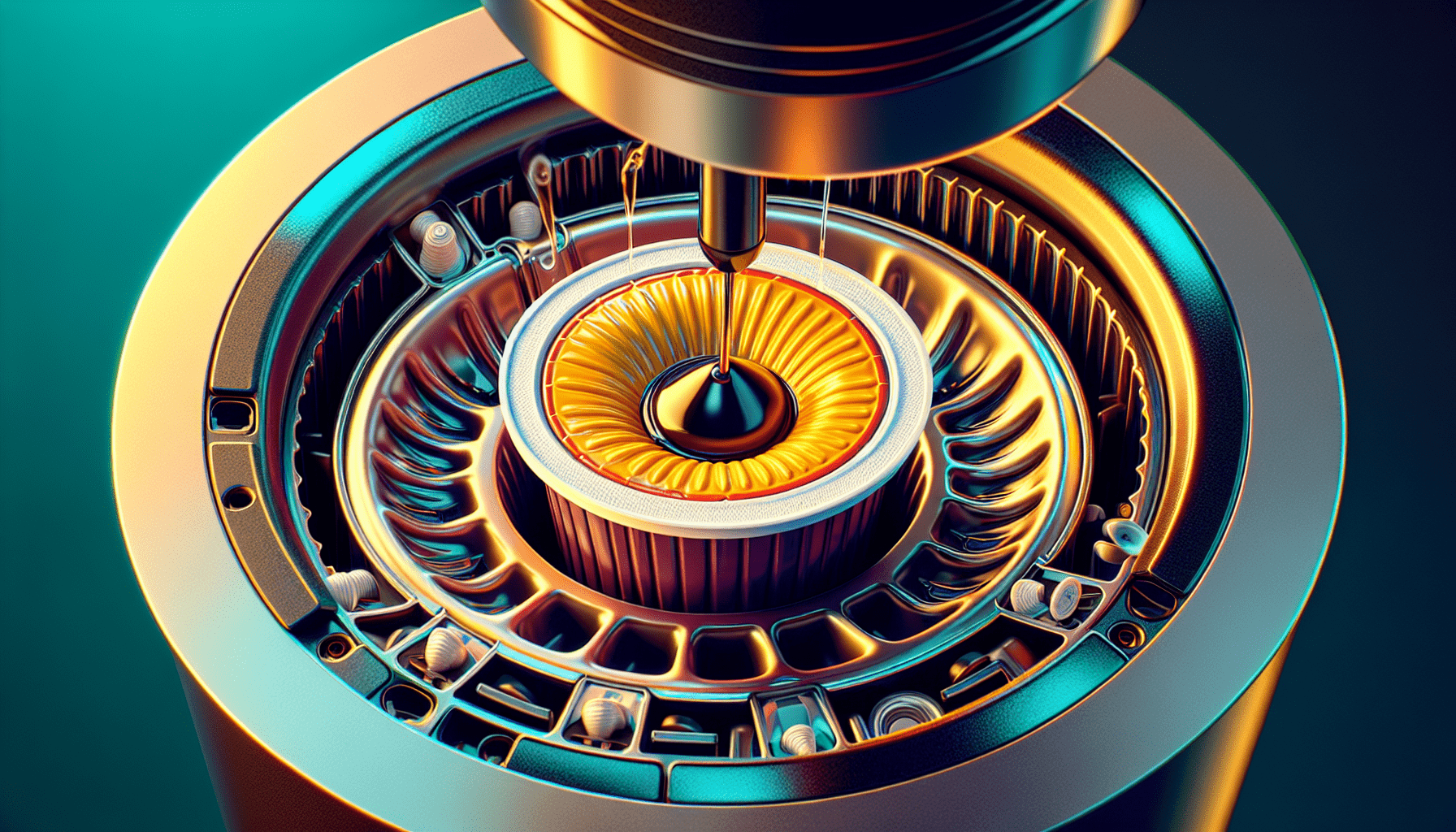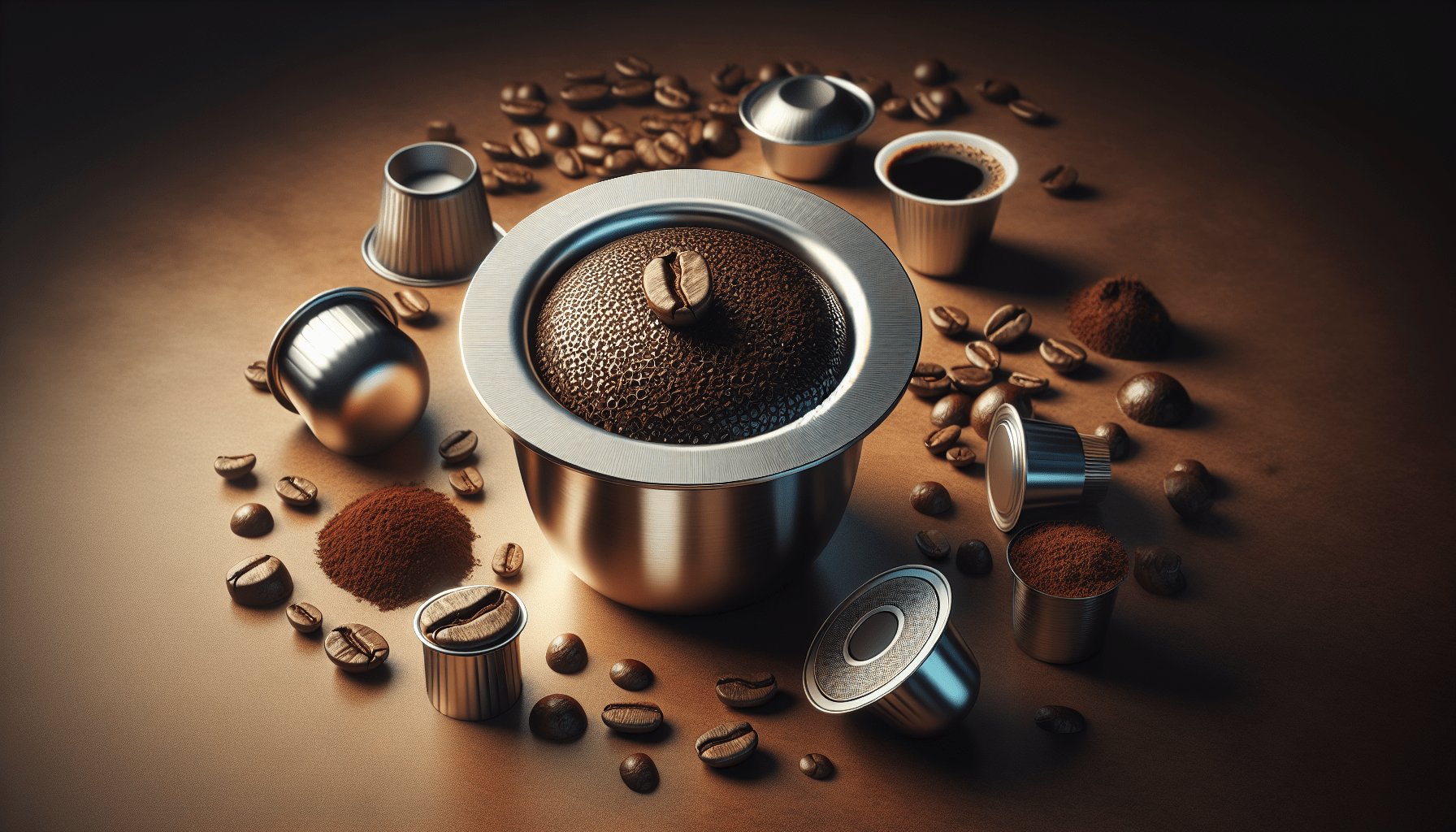When it comes to brewing a perfect cup of coffee, many coffee enthusiasts rely on the convenience of K-cup coffee makers. But have you ever wondered if these machines come equipped with a water filter? After all, the quality of water used can greatly impact the taste and flavor of your morning brew. In this article, we’ll explore the question of whether K-cup coffee makers come with a water filter, and delve into the importance of using filtered water for a truly satisfying coffee experience. So, grab your favorite mug and let’s find out!
Overview of K-cup coffee makers
Explanation of K-cup coffee makers
K-cup coffee makers, also known as single-serve coffee makers, have become increasingly popular in recent years. These machines are designed to quickly brew a single cup of coffee by using individual coffee pods known as K-cups. The convenience and ease of use of K-cup coffee makers have made them a favorite among coffee lovers who want a quick and hassle-free way to enjoy a fresh cup of joe.
Features of K-cup coffee makers
K-cup coffee makers come with a variety of features that make them appealing to coffee enthusiasts. Some common features include multiple cup sizes, temperature control, programmable settings, and automatic shut-off. These machines also offer a wide range of flavors and blends, as K-cups are available in countless options from various coffee brands.
Benefits of using K-cup coffee makers
The benefits of using K-cup coffee makers are numerous. First and foremost, they offer convenience, allowing you to have a fresh cup of coffee ready in less than a minute. This is particularly advantageous for individuals with busy lifestyles or those who lack the time or interest in preparing a full pot of coffee. Additionally, K-cup coffee makers eliminate the need for measuring coffee grounds and provide a consistent and reliable cup of coffee every time.
Importance of water filtration in coffee makers
Impact of water quality on coffee taste
The quality of water used to brew coffee plays a significant role in the final taste and flavor of the beverage. Without proper water filtration, impurities such as chlorine, minerals, and contaminants can affect the taste and aroma of the coffee. Water with a high mineral content, for example, can result in a bitter or metallic taste. Therefore, ensuring that the water used in the brewing process is of high quality is crucial in achieving a delicious and satisfying cup of coffee.
Benefits of using filtered water
Using filtered water in your K-cup coffee maker can greatly enhance the taste and overall experience of your coffee. Filtering the water helps to remove impurities and particles that can negatively impact the flavor, making your coffee taste cleaner, smoother, and more flavorful. Filtered water also helps to improve the aroma of the coffee, allowing you to fully enjoy the rich scent that accompanies a freshly brewed cup.
Prevention of mineral buildup in coffee makers
Another important benefit of using filtered water in your K-cup coffee maker is the prevention of mineral buildup. Mineral deposits, such as limescale, can accumulate over time and clog the internal components of the machine. This can lead to reduced performance, slower brewing times, and even damage to the coffee maker. By filtering the water, you can prevent mineral buildup and prolong the lifespan of your K-cup coffee maker, ensuring it continues to function optimally for years to come.
Types of water filters
Internal water filters
Some K-cup coffee makers come equipped with built-in water filters. These internal filters are typically located within the machine and work to purify the water as it passes through the coffee maker. Internal filters are often designed to eliminate impurities and improve the taste of the brewed coffee.
External water filters
External water filters, on the other hand, are separate units that can be attached to K-cup coffee makers. These filters connect to the water source before it enters the coffee maker, effectively purifying the water before it is used in the brewing process. External filters can provide an additional layer of filtration and are particularly useful in areas where the water quality is poor.
Charcoal filters
Charcoal filters are a common type of water filter used in K-cup coffee makers. These filters contain activated charcoal, which effectively traps and removes impurities from the water, including chlorine, minerals, and contaminants. Charcoal filters are known for their ability to improve the taste and odor of the water, resulting in a better-tasting cup of coffee.
Do all K-cup coffee makers come with a water filter?
Overview of different K-cup coffee maker models
Not all K-cup coffee makers come with a built-in water filter. The presence of a water filter varies depending on the specific model and brand of the machine. It is important to research and read product descriptions carefully to determine whether or not a particular K-cup coffee maker includes a water filter.
Water filtration features in popular K-cup coffee makers
Many popular K-cup coffee makers on the market do come with built-in water filters. These filters are designed to enhance the taste and quality of the coffee by removing impurities from the water. Brands such as Keurig, Ninja, and Cuisinart offer models with built-in water filtration systems that ensure you enjoy a delicious and clean cup of coffee every time.
Variations in water filtration capabilities
While most K-cup coffee makers with built-in water filters offer basic filtration, some models provide more advanced filtration capabilities. These advanced filters can effectively remove a wider range of impurities, resulting in an even cleaner and better-tasting cup of coffee. It is important to consider your water quality and filtration needs when choosing a K-cup coffee maker to ensure it meets your preferences.
Pros and cons of built-in water filters
Advantages of K-cup coffee makers with built-in filters
One of the key advantages of K-cup coffee makers with built-in filters is the convenience they offer. With a built-in filter, you don’t need to purchase and replace external filters, making the brewing process even simpler. Built-in filters also ensure consistent filtration, as the machine is designed specifically to work with the filter, resulting in reliably filtered water for every cup of coffee.
Disadvantages of K-cup coffee makers with built-in filters
One potential drawback of K-cup coffee makers with built-in filters is the limited filtration capacity. These filters may not be as advanced or effective as some external filters, especially in areas with poor water quality. Additionally, built-in filters may require more frequent replacement compared to external filters, as they can become less efficient over time. It is important to consider the filtration needs of your specific water source when deciding between a built-in or external water filter.
Can K-cup coffee makers use external water filters?
Compatibility of K-cup coffee makers with external filters
Many K-cup coffee makers are compatible with external water filters. These machines typically have a designated area or attachment point where the external filter can be connected. If you prefer the advanced filtration capabilities of external filters or have particularly poor water quality, using an external water filter with your K-cup coffee maker is a viable option.
Benefits of using external water filters with K-cup coffee makers
Using an external water filter with your K-cup coffee maker offers several benefits. Firstly, it provides an extra layer of filtration, ensuring that even the smallest contaminants are removed from the water. This can further enhance the taste and quality of your coffee. Additionally, using an external filter allows you to customize the filtration system according to your specific water source, maximizing the effectiveness of the filtration process.
Types of external filters suitable for K-cup coffee makers
There are various types of external filters available that are suitable for use with K-cup coffee makers. Some popular options include faucet-mounted filters, pitcher filters, and under-sink filters. These filters vary in terms of installation method and filtration capabilities, allowing you to choose the option that best meets your needs and preferences.
Maintaining and replacing water filters
Cleaning and maintenance of built-in filters
Built-in water filters in K-cup coffee makers require regular cleaning and maintenance to ensure optimal performance. It is recommended to follow the manufacturer’s instructions for cleaning and maintenance, as each model may have specific requirements. Generally, built-in filters can be cleaned by rinsing them under running water or soaking them in a solution of water and vinegar to remove any buildup or residue.
Replacement frequency of built-in filters
The frequency of replacing built-in water filters in K-cup coffee makers varies depending on the model and usage. Some manufacturers recommend replacing the filter every two to three months, while others may suggest replacing it after a certain number of brewing cycles. It is important to refer to the user manual or manufacturer’s guidelines to determine the appropriate replacement schedule for your specific K-cup coffee maker.
Replacement filters for K-cup coffee makers
When it comes to replacing the water filter in your K-cup coffee maker, it is essential to use filters specifically designed for that model. Each brand and model may have its own compatible replacement filters, ensuring a proper fit and optimal filtration performance. Replacement filters can often be purchased directly from the manufacturer or from authorized retailers.
Alternative methods of water filtration
Using pre-filtered water
An alternative method of water filtration for K-cup coffee makers is to use pre-filtered water. This can be done by purchasing bottled or filtered water to use in the coffee maker. Pre-filtered water is already purified and free from impurities, ensuring a clean and tasty cup of coffee. However, this method may be less cost-effective and less eco-friendly compared to using a filtration system.
Using filtered water pitchers
Filtered water pitchers are another option for achieving filtered water for your K-cup coffee maker. These pitchers typically use a replaceable charcoal filter to remove impurities from the water. By filling the pitcher with tap water and letting it pass through the filter, you can obtain clean and filtered water to use in your coffee maker. This method is cost-effective and environmentally friendly, as it reduces the need for single-use water bottles.
Connecting K-cup coffee maker to water line with a built-in filter
For those seeking a more permanent solution, certain K-cup coffee makers can be connected directly to a water line with a built-in filter. This setup allows for a continuous supply of filtered water without the need for manual refilling. While this installation may require more initial effort and cost, it provides the utmost convenience and ensures a consistent supply of high-quality water for brewing coffee.
Considerations when choosing a water filtration system
Budget and cost of filters
When choosing a water filtration system for your K-cup coffee maker, it is important to consider your budget and the ongoing cost of replacement filters. Some systems may have higher upfront costs but lower filter replacement expenses, while others may have more affordable initial prices but require frequent filter replacements. It is essential to find a balance between your budget and the effectiveness of the filtration system.
Ease of installation and maintenance
Another important consideration is the ease of installation and maintenance of the water filtration system. If you prefer a hassle-free setup, models with built-in filters or pitcher filters may be more suitable. On the other hand, if you are comfortable with more involved installations, faucet-mounted filters or under-sink filters may be worth considering. Additionally, maintenance requirements should be taken into account, as some filters may require more frequent cleaning or replacement.
Effectiveness in improving water quality
The effectiveness of a water filtration system in improving water quality is paramount. Consider the specific impurities present in your water, such as chlorine, minerals, or contaminants, and choose a filtration system that targets those specific impurities. Reading product specifications and customer reviews can provide valuable insights into the filtration capabilities of different systems.
Conclusion
In conclusion, the presence of a water filter in K-cup coffee makers can greatly impact the taste, quality, and longevity of your coffee maker. Whether you opt for a machine with a built-in filter or choose to use an external filter, the benefits of water filtration in obtaining cleaner and better-tasting coffee are undeniable. By considering your water quality, filtration preferences, and maintenance requirements, you can select the most suitable water filtration system for your K-cup coffee maker and enjoy a consistently delicious cup of coffee every time.




